B-P and Southeastern leaders push back on calls for lottery-based admissions
- Oops!Something went wrong.Please try again later.
Technical and vocational school administrators are pushing back against accusations that their admissions policies are discriminatory, and that they should instead be made lottery-based.
Last month, the Gateway Cities Legislative Caucus, a 26-member group of legislators co-chaired by state Sen. John Cronin, D-Fitchburg, and state Rep. Antonio Cabral, D-New Bedford, wrote a letter to Gov. Maura Healey and Lt. Gov. Kim Driscoll asking that the administration "direct the Board of Elementary and Secondary Education (BESE) to prohibit selective criteria that discriminates against disadvantaged 8th graders and inhibits their social and economic mobility."
The letter goes on to ask the Healey administration to "mandate lottery admissions at vocational schools." It came several months after the Vocational Education Justice Coalition, a group comprised of community and civil rights advocates, filed a complaint along similar lines with the U.S. Department of Education, according to WBUR.
But school administrators say a lottery-based admissions system would take seats away from students who benefit most from vocational education.
'Above and beyond' Standing room only as Raynham honors SRO Lou Pacheco as life-changing mentor
Superintendent says B-P has diverse student body
Bristol-Plymouth Regional Technical School Superintendent Alexandre Magalhaes said the school already has a diverse student population and it's unclear that a lottery system would result in a more diverse student body.
"If you look at the diversity of our school compared to other towns in our school district and Taunton, we have a diverse group of students," he said.
"When it comes to admitting students, we don't ask what nationality they are or if they have special education needs. Those questions were asked 30 years ago. We have always had an application process since the school began," he said.
Twice as many applicants as seats at B-P
Magalhaes said the school can accommodate 350 freshmen each year but receives approximately 700 applications from eighth graders who wish to enroll.
"Vocational schools have become popular to attend during the last few years," he said. "Kids are excelling in the trades."
Magalhaes said his administration tries to make the admission of students competitive to encourage them to work harder academically while they attend middle school.
"We prepare our kids for the workforce and to be ready to attend college," he said. "That is part of the DESE (state Department of Elementary and Secondary) recommendation."
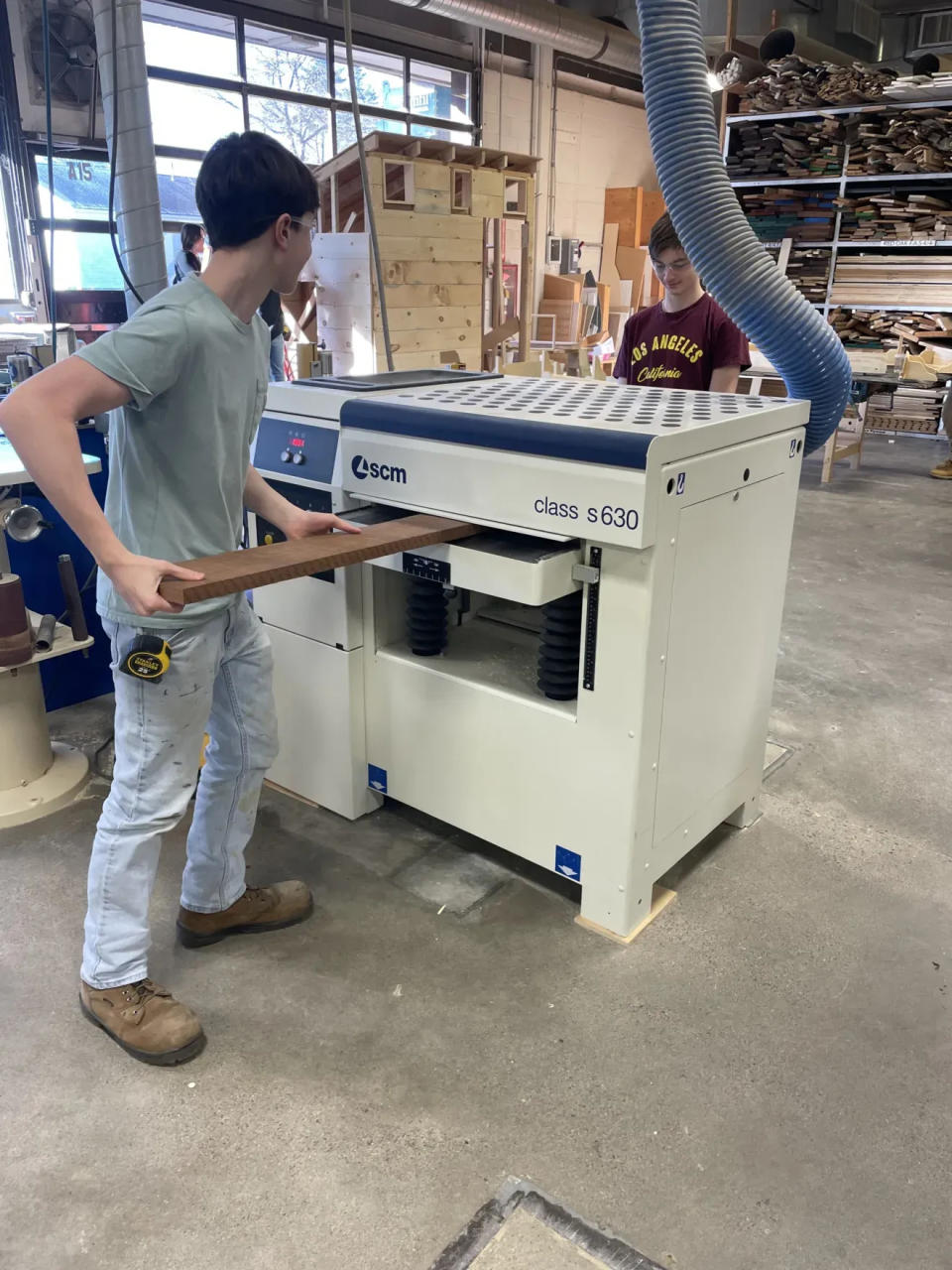
B-P's admissions process
Magalhaes said the admission of students is based on how many classes they pass in eighth grade, attendance and behavior.
"A student gets points for passing a course and zero for failing a course," he said. "Class attendance is part of our criteria because we train kids to be on time when they go to work and to be ready to work."
Magalhaes said the acceptance of student applicants includes evaluating their middle school disciplinary records.
"The discipline numbers are looked at and it's not something that would hold a student back from being enrolled," he said. "If a guidance counselor truly thinks a student would be a good candidate for our school we will interview them."
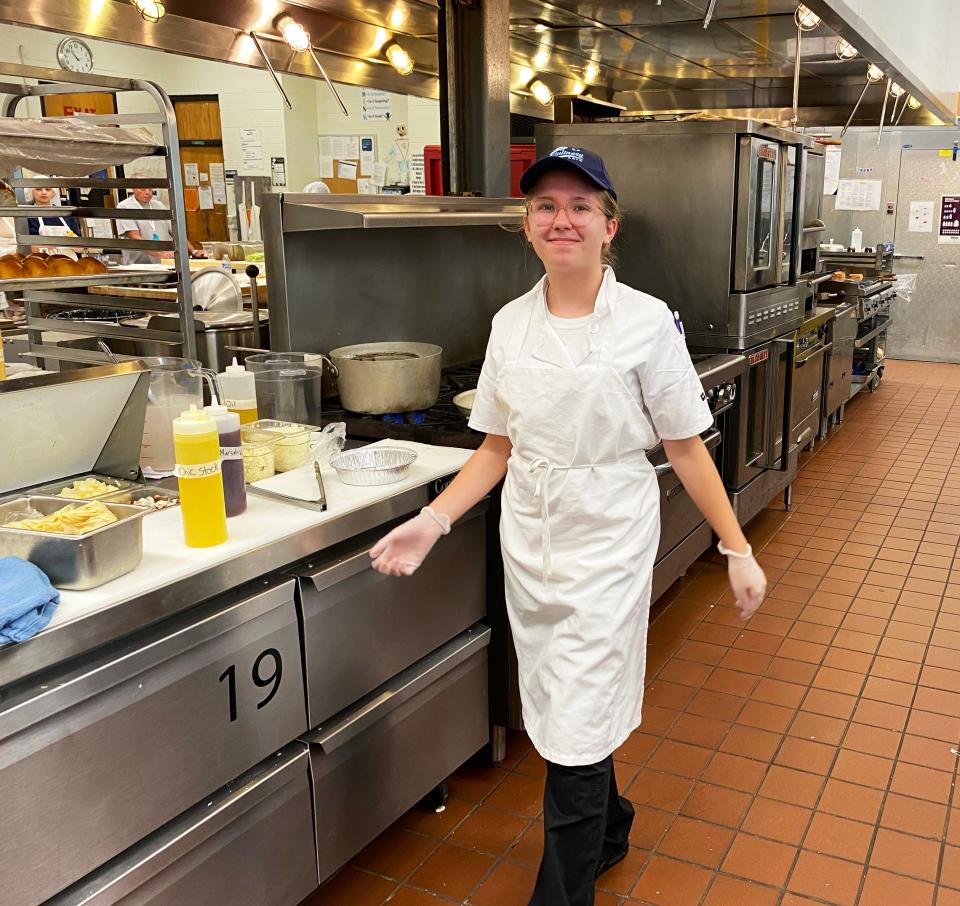
New B-P building will allow for more students
Construction of a new $305 million Bristol-Plymouth school building is underway and it will be able to accommodate 100 more students when it's projected to open in September 2026, he said.
"The school will be built for 1,440 students," he said. "We have a list of 1,340 students right now. We are not sure if we will be admitting 100 additional freshmen. The 100 students could be spread out to all grades. As for increasing the amount of freshmen, that will be phased in."
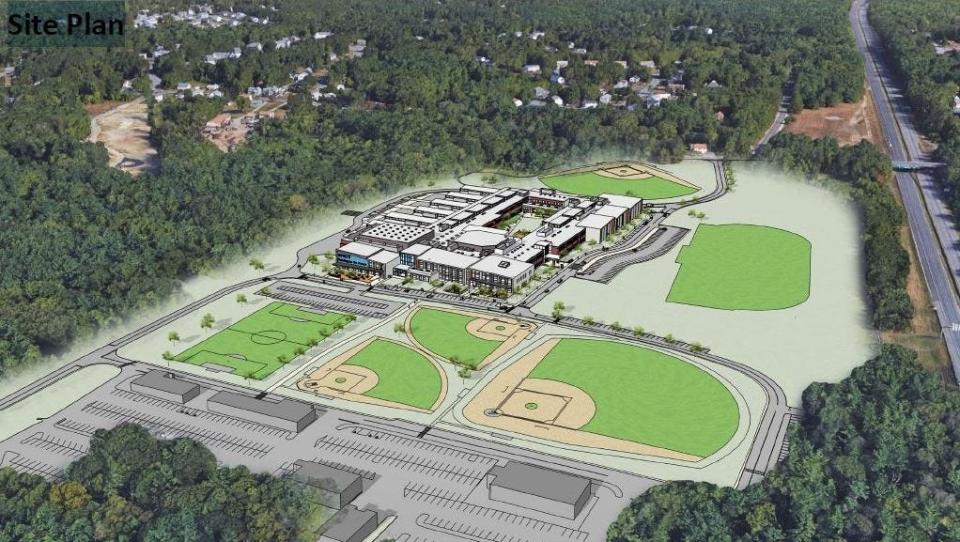
Superintendent says students of color 'highly represented' at Southeastern
Southeastern Regional Vocational Technical School Superintendent Holly McClanan said the school has a very diverse student population, and a lottery system would hinder the ability of administrators to admit students who can benefit from a vocational education.
"I know the proponent of the lottery,” she said. “One of their objectives is to make sure students of color and students who speak English as a second language get admitted to these (vocational) schools. Our students in those categories are highly represented."
Trailblazer Southeastern cosmetology teacher hailed as trailblazer for 'blow-out boot camp'
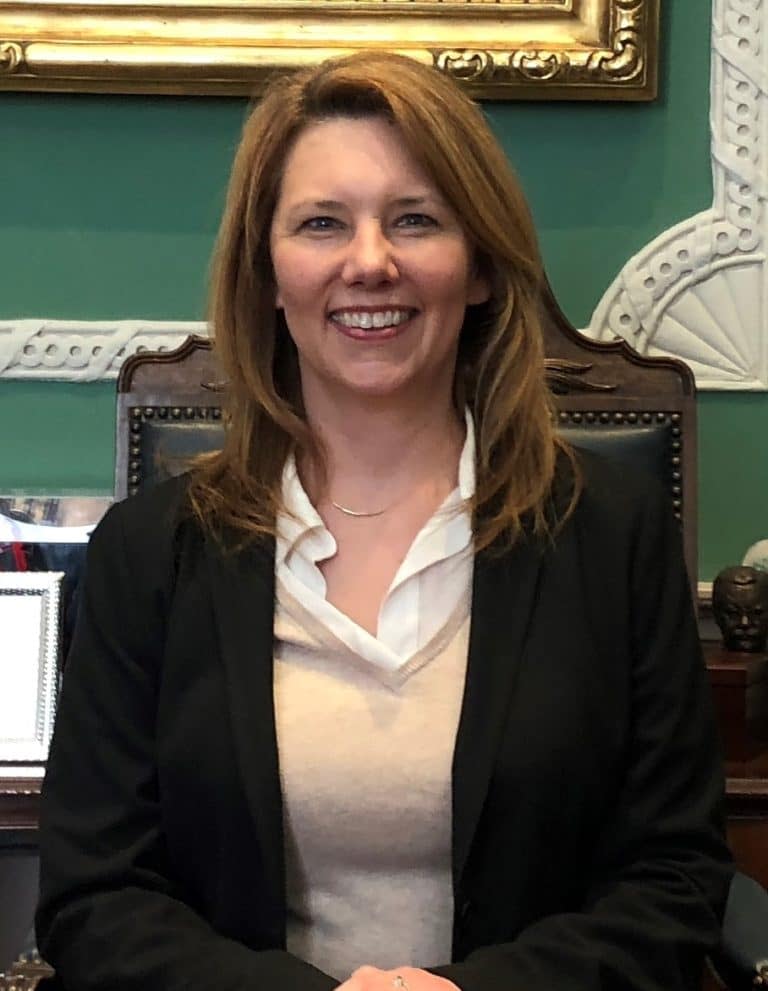
Southeastern has nearly three times as many applicants as seats
McClanan said Southeastern Regional Vocational Technical School uses competitive criteria to admit students because the school can only accommodate 416 freshmen.
"We have received over 1,100 applications for our 416 freshmen seats," she said.
McClanan said she supports expanding access for students to receive vocational education but Southeastern can't do that.
"We need more seats," she said. "The lottery would change the names of kids who get into our school, but it does not change the length of the waiting list for students who want a vocational education."
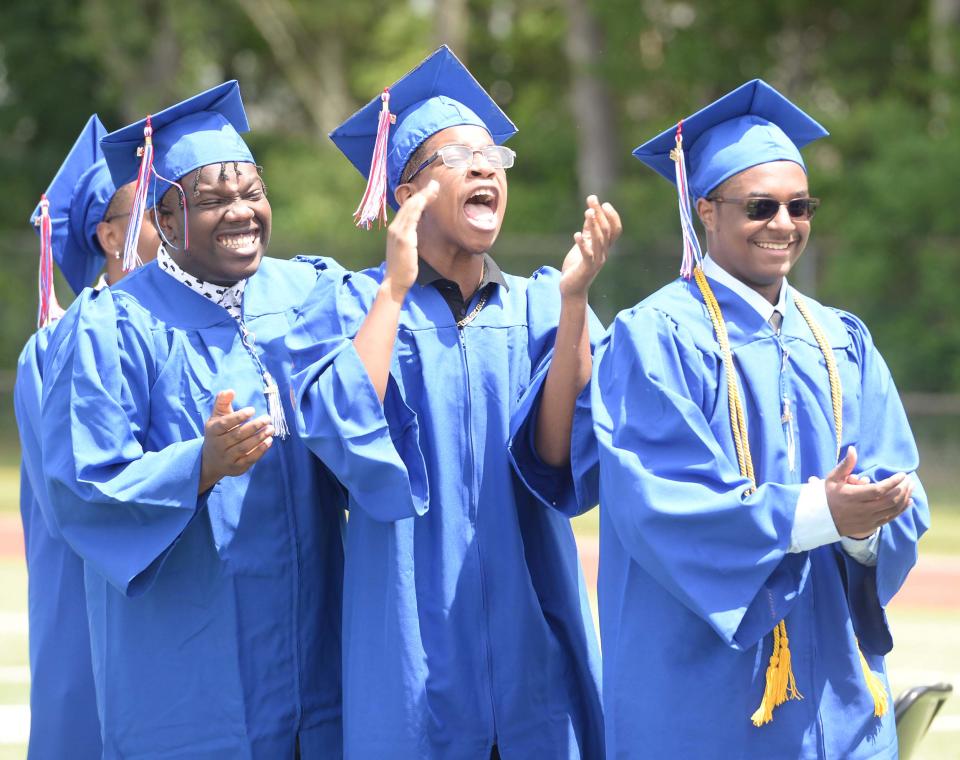
Southeastern's admissions process
McClanan said the school's competitive admissions process is designed to identify eighth-grade applicants who will benefit from a vocational education.
"The admissions process involves looking at a student's grades, their attendance and if they have received serious discipline for their behavior," she said. "Normal student misbehavior does not count against them. "
McClanan said the school also seeks recommendations from applicants' middle school teachers or guidance counselors.
"We believe we should have some competitive criteria because we offer specialized education," she said.
“We have a live-work environment with industrial equipment that is dangerous to operate. It’s important to have students that have maturity in that space."
Former Southeastern official questions data used by lottery supporters
Karen Maguire, superintendent-director of Tri-County Regional Technical Vocational High School in Franklin, also does not support lottery-based admissions.
Maguire said during her time at Southeastern in Easton — where she served as director of career pathways and integrated learning and engagement — they simulated the lottery and found that the populations in the protected subgroups declined, and that more of those students were waitlisted.
"While it sounds like it (lottery-based admissions) would be a great solution, in practicality it isn't," she said.
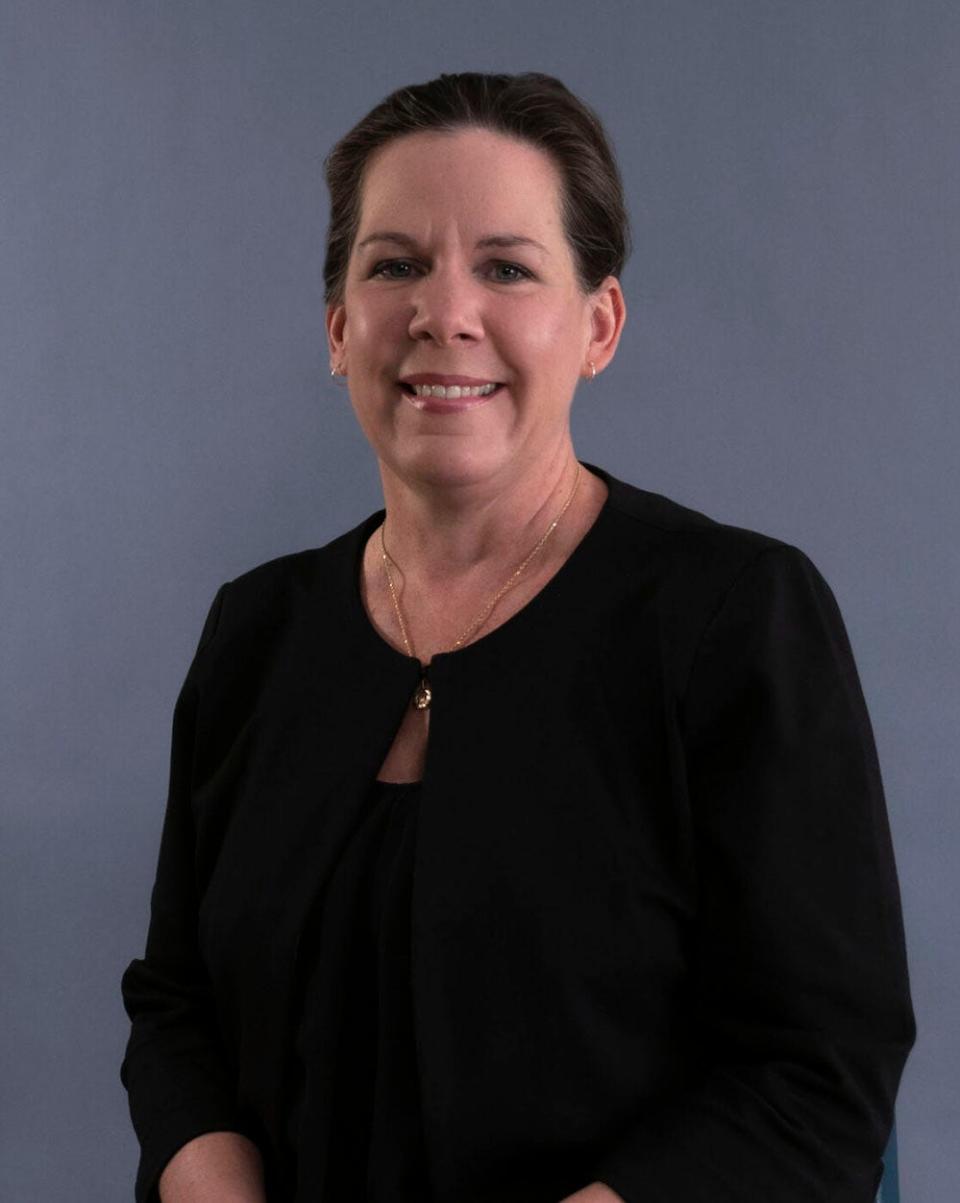
Tri-County asks eighth grade students to complete an application, get a letter of recommendation and sit down for an interview to ascertain whether technical or vocational education is right for them.
"I think that right now it doesn't solve any of the problems," Maguire told the Daily News. "The data that the folks who are supporting a blind lottery... I'm not convinced that it's accurate."
She pointed to the often-cited 6,000 to up to 15,000 students on the waitlist statewide, which she says doesn't match her numbers. She also said it doesn't take into account the fact that students who are admitted, but then decline admission into Tri-County are also added to the waitlist.
"As a person who's done research, immediately I can look at it and tell you it's not valid," Maguire said. "It's too wide of a range."
Proponents of lottery admissions say it gives equal chance for all
The Gateway Cities Legislative Caucus states that a lottery system would allow for every student, regardless of background, to have the same chance of admission.
"We believe children who grow up in poverty in Massachusetts — thousands of whom live in Gateway Cities — deserve the same opportunity to attend a vocational school," the group's Dec. 20 letter to Healey and Driscoll reads.
Gateway Cities are described by MassInc as "midsized urban centers that anchor regional economies around the state and face stubborn social and economic challenges." There are 26 of them in Massachusetts, including Attleboro, Brockton, Fall River, New Bedford, Quincy, Taunton and Worcester.
The caucus pointed out that in 2003, vocational schools were directed by DESE to rank applicants based on middle school grades, attendance, disciplinary record and interviews. It says that DESE admissions data show that criteria discriminates against three protected classes of students — students of color, disabled students and English language learners — as well as economically disadvantaged students.
In response, DESE approved new regulations in 2021 permitting districts the flexibility to change their policies to address systemic opportunity gaps.
What's a 'minimum criteria lottery'?
The caucus said two schools — Assabet Valley Regional Technical High School in Marlborough and Worcester Technical High School — adopted a lottery system and had success with it.
However, Assabet Valley Superintendent Ernest Houle told the Daily News that the school's admissions system is actually a so-called "minimum criterial lottery." Under this system, students need to complete an application, get a letter of recommendation from a nonfamily member and must take part in an ungraded and unranked interview.
"We personalize our education and we know our students, and that process starts when they're applying," he said.
"As administrators of these schools... we look at whether or not we're equitable, and the state looks at it as well," Maguire added. "So I don't know that there's a need for legislation to demand a lottery when, No. 1, it's not going to fix the students on the waitlist. It (the lottery) doesn't add seats, so you'll still have however many students on the waiting list — it's just going to be rearranged, and there's been no demonstrated lottery anywhere that shows it does indeed impact inequities. I don't know that it would be worth conversation between the people in favor of the lottery and the people that are not to really just hash out what the best thing to do is."
This article originally appeared on MetroWest Daily News: B-P, Southeastern superintendents push back on lottery admissions

